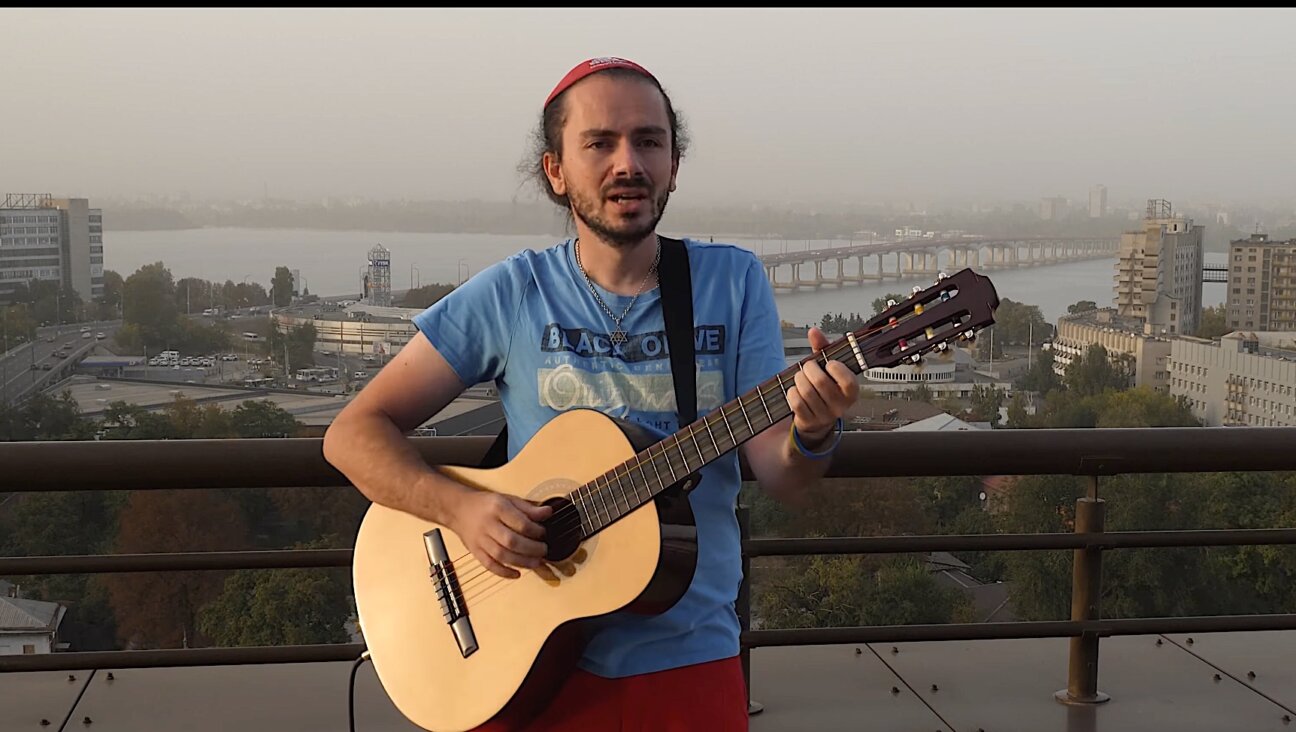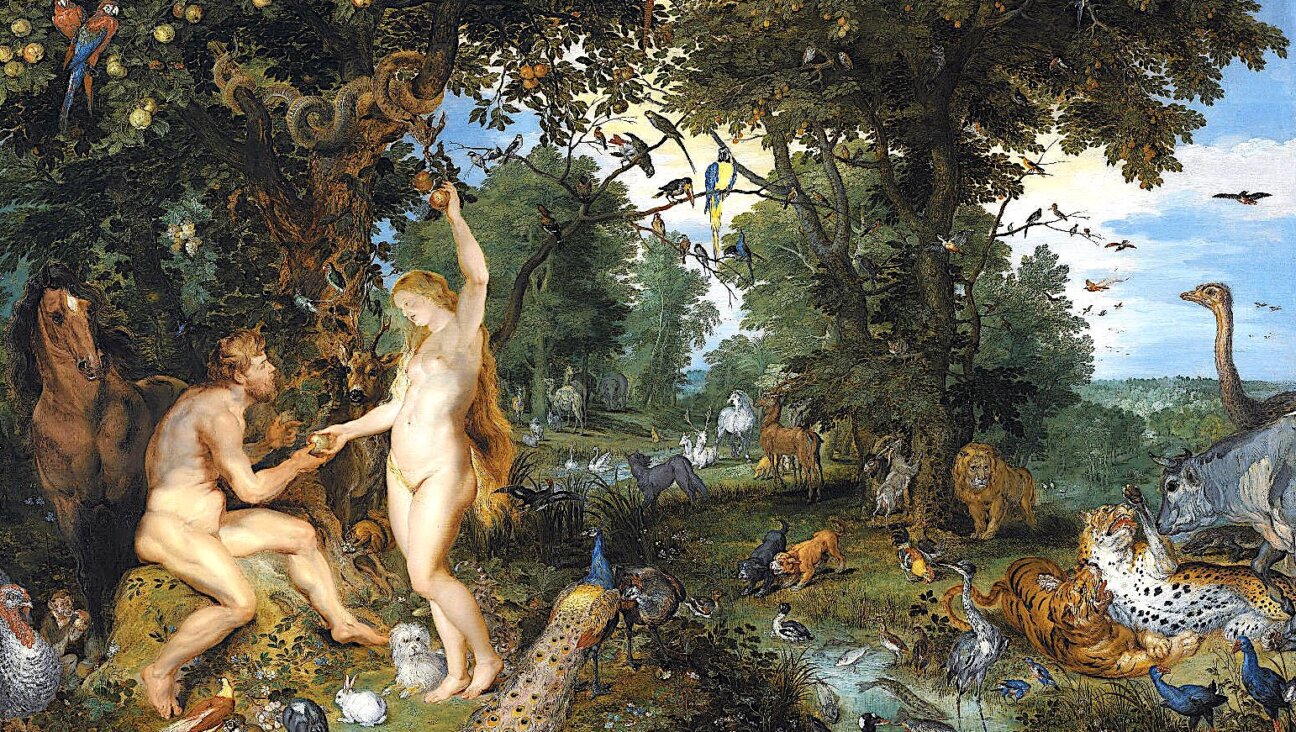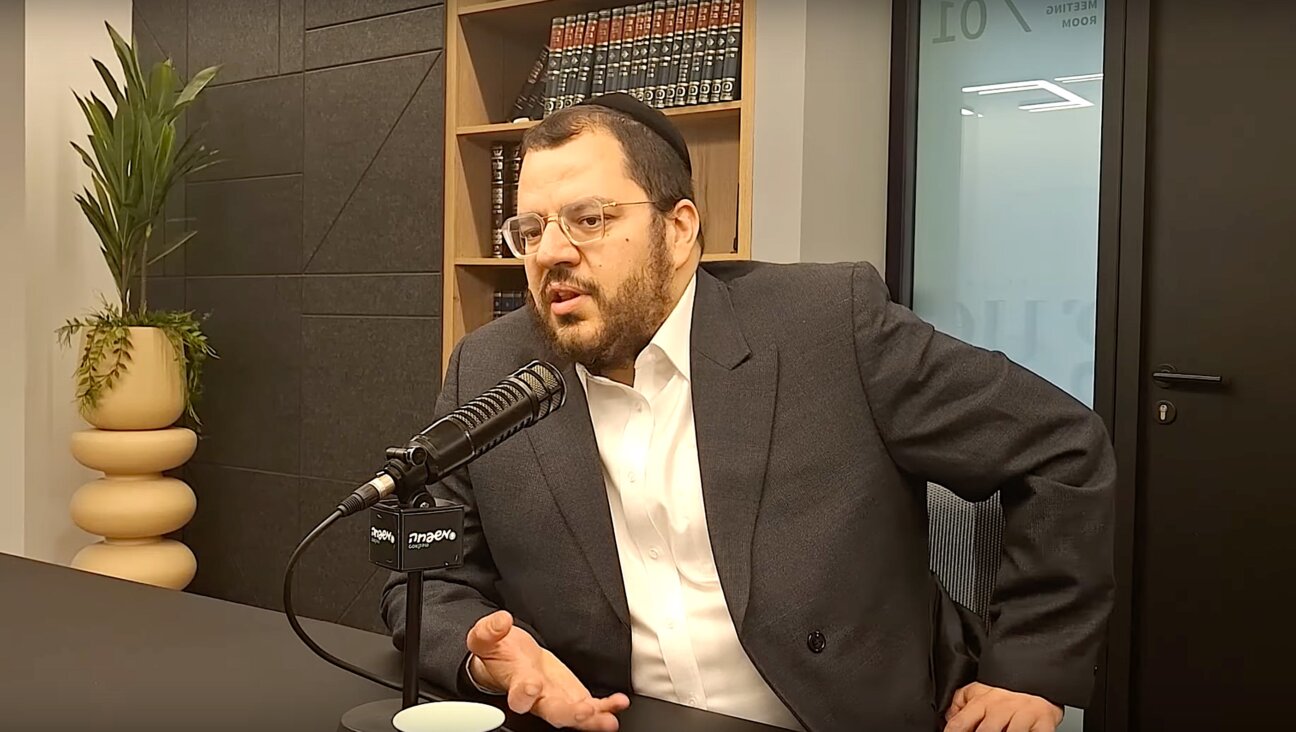אַ זום־לעקציע מיט יצחק ניבאָרסקי וועגן אַהרן צײטלינס חורבן-פּאָעזיע Online lecture with Yitskhok Niborski on the Holocaust poetry of Aaron Zeitlin
צייטלינס שורה, „אין די נאָך-מײַדאַנעק יאָרן אָן גאָט“, וואָס דינט פֿאַר אַ טיטל פֿונעם רעפֿעראַט, איז בשום-אופֿן נישט קיין אויסדרוק פֿון גאָט-לייקענונג מצד דעם דיכטער.

אַהרן צײַטלין אין 1962 Photo by Wikipedia
זונטיק, דעם 6טן נאָוועמבער וועט דער אָנגעזעענער וויצע־פּרעזידענט פֿונעם פּאַריזער ייִדיש־צענטער, יצחק ניבאָרסקי, אָפּהאַלטן אַ לעקציע, „אין די נאָך-מײַדאַנעק יאָרן אָן גאָט“ וועגן דער חורבן-פּאָעזיע פֿון אַהרן צײטלין. די לעקציע וועט זײַן אויף ייִדיש.
די פּראָגראַם איז דער נײַנטער יערלעכער רעפֿעראַט דורכגעפֿירט פֿונעם ייִדיש־קאָמיטעט בײַ דער „יו־דזשיי־איי“ אין אָנדענק פֿונעם טאָראָנטער ייִדישן פּאָעט שׂמחה סימכאָוויטש (1921־2017).
דער שרײַבער אַהרן צייטלין (2017-1898) איז אָנהייב 1939 געקומען פֿון זײַן שטאָט וואַרשע אויף אַ וויזיט אין ניו-יאָרק. דורך דעם איז ער געבליבן לעבן. ער איז דער איינציקער אַנטרונענער פֿון זײַן גאַנצער משפּחה — אַ משפּחה וואָס האָט געשפּילט אַ צענטראַלע ראָלע אינעם גײַסטיקן לעבן פֿון די פּוילישע ייִדן זינט אָנהייב 20סטן יאָרהונדערט. די צווייטע העלפֿט פֿון זײַנע יאָרן, שוין אין אַמעריקע, שטייט אונטערן צייכן פֿונעם אומקום פֿון מיזרח-אייראָפּעיִשן ייִדנטום. דאָס איז די צענטראַלע טעמע פֿון זײַנע נאָכמלחנהדיקע ווערק.
צייטלינס שורה, „אין די נאָך-מײַדאַנעק יאָרן אָן גאָט“, איז בשום-אופֿן נישט קיין אויסדרוק פֿון גאָט-לייקענונג מצד דעם גרויסן דיכטער. ער כאַראַקטעריזירט נאָר דעם צושטאַנד פון אַ פֿאַרפֿינצטערטער וועלט אין וועבאַצייכנט ווי „אַן אמונהדיקער פּאָעט“, ראַנגלט זיך מיט דעם אייגענעם ייִאוש כּדי אויפֿצוהיטן און ווידער צעבלאָזן דווקא דעם פֿונק פֿון גלויבן.
אין זײַן לעקציע וועט ניבאָרסקי באַטראַכטן די בולטסטע אַספּעקטן פון דעם דאָזיקן געראַנגל, וואָס מוז כּסדר צוריק זיך אָנהייבן און קען זיך קיין מאָל נישט אײַנשטילן. ניבאָרסקיס ציל איז, דורך געציילטע ציטירטע שאַפֿונגען, לאָזן שפּירן דעם גרויסן קינסטלערישן כּוח פֿון צייטלינס לידער, וווּ צווישן אָפּגרונטן פֿון דערשלאָגנקייט לײַכט זיך דורך אַ שײַן פֿון טרייסט. ער וועט באַקענען די צוהערערס מיט אַזעלכע אַספּעקטן ווי פֿאָרגעפֿיל ערבֿ דער קאַטאַסטראָפֿע, פּאָעזיע אינעם גײַסט פון קינות, דאָס אַמפּערן זיך מיט ספֿקות און דאָס דערשלאָגן זיך צו גלייביקע זעונגען.
כּדי זיך צו פֿאַרשרײַבן אויפֿן רעפֿעראַט, גיט אַ קוועטש דאָ.
A message from our CEO & publisher Rachel Fishman Feddersen

I hope you appreciated this article. Before you go, I’d like to ask you to please support the Forward’s award-winning, nonprofit journalism during this critical time.
At a time when other newsrooms are closing or cutting back, the Forward has removed its paywall and invested additional resources to report on the ground from Israel and around the U.S. on the impact of the war, rising antisemitism and polarized discourse.
Readers like you make it all possible. Support our work by becoming a Forward Member and connect with our journalism and your community.
— Rachel Fishman Feddersen, Publisher and CEO























